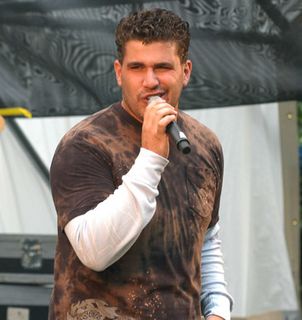A Quote by Victor Hugo
If it were (Is it not) outrageous that society should treat with such rigid precision those of its members who were most poorly endowed in the distribution or wealth that chance had made, and who were, therefore, most worthy of indulgence.
Related Quotes
The early Rockefellers made their wealth from being in certain businesses and remained personally very wealthy. Tata's were different in the sense the future generations were not so wealthy. They were involved in the business but most of the family wealth was put into trust and most of the family did not in fact did not enjoy enormous wealth.
[Ginsburg's] feminism was very sweeping and very ambitious and very consistent. Justice O'Connor had a more case-by-case, pragmatic approach to her feminism. They were not entirely the same, [but] I think that they shared the most important thing, which is the belief that they were worthy and that therefore other women were worthy.
The - the early Rockefellers made their wealth from being in certain businesses and - and remained personally very wealthy. Tatas were different in the sense the future generations were not so wealthy. They - they were involved in the business, but most of the family wealth is put into trust, and the family did not, in fact, enjoy enormous wealth.
Under the old social philosophy which had governed the Middle Ages, temporal, and therefore all economic, activities were referred to an eternal standard. The production of wealth, it distribution and exchange were regulated with a view to securing the Christian life of Christian men. In two points especially was this felt: First in securing the independence of the family, which can only be done by the wide distribution of property, in others words the prevention of the growth of a proletariat; secondly, in the close connection between wealth and public function.
When I grew up in India, telephones were a rarity. In fact, they were so rare that elected members of Parliament had the right to allocate 15 telephone lines as a favor to those they deemed worthy. If you were lucky enough to be a wealthy businessman or an influential journalist, or a doctor or something, you might have a telephone.
then she was laughing. They both were, and the savage teeth were the most joyous sight Phaedra had seen for a long time. It was as if they were dancing. There it was. Suddenly the strangeness of Quintana of Charyn's face made sense. Because it was a face meant for laughing, but it had never been given a chance.
The hardest bits of my book to read were the easiest bits to write because they were the most immediate. Probably because I had never stopped thinking about them on some level. Those bits I was just channelling and those were the most exciting writing days. The bits I found harder were the bits that happen in between, you know, the rest of living. There were whole years, whole houses, that I just got rid of.
Kools and Newports were for black people and lower-class whites. Camels were for procrastinators, those who wrote bad poetry, and those who put off writing bad poetry. Merits were for sex addicts, Salems were for alcoholics, and Mores were for people who considered themselves to be outrageous but really weren't.
In those same decades, most UFO sightings were made in the daytime and frequently at close range, when shapes and surface features could be distinguished, thus making positive identification of normal sights easier and the descriptions of unusual sights more detailed. When all normal explanations had been eliminated, the witnesses could concentrate on those aspects of the experience which were most abnormal.
For me, Stalinism was even a greater philosophical problem than Nazism. Under Nazism, if you were a Jew, you were simply killed, no questions asked, you had nothing to prove. Under Stalinism, of course, most [victims] were on trial for false accusations; most of them were not traitors. There is one interesting feature: that they were tortured or through some kind of blackmail forced to confess to being traitors.





































